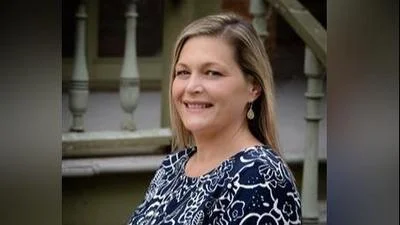Jamie Wall, Wisconsin State Senator for 30th District | www.wallforwisconsin.com
Jamie Wall, Wisconsin State Senator for 30th District | www.wallforwisconsin.com
According to the Wisconsin State Legislature's official website, the bill was described as follows: "virtual currency kiosks".
The following is our breakdown, based on the actual bill text, and may include interpretation to clarify its provisions.
In essence, this bill mandates that operators of virtual currency kiosks in Wisconsin obtain a money transmitter license and comply with specific regulations. It defines virtual currency kiosks as terminals where individuals can exchange fiat currency, like U.S. dollars, for virtual currency such as cryptocurrency. The kiosks must display a fraud warning both physically and digitally, which customers must acknowledge before transactions. Operators are required to verify customer identities, collect specific personal information, and photograph customers during transactions. The bill caps daily transactions at $1,000 per customer and limits transaction fees to the greater of $5 or 3% of the transaction value. Refunds must be issued for fraudulent transactions if reported within 30 days to both the kiosk operator and law enforcement. Customer identification requirements apply to transactions starting 60 days after the bill’s effective date.
The bill was co-authored by Rep. Ryan Spaude (Democrat-89th District), Sen. Kristin Dassler-Alfheim (Democrat-18th District), Sen. Dora E. Drake (Democrat-4th District), Sen. Dianne H. Hesselbein (Democrat-27th District), and Sen. Sarah Keyeski (Democrat-14th District). It was co-sponsored by Rep. Clinton M. Anderson (Democrat-45th District), Rep. Ryan M. Clancy (Democrat-19th District), and Rep. Ben DeSmidt (Democrat-65th District), along with seven other co-sponsors.
Jamie Wall has co-authored or authored another 44 bills since the beginning of the 2025 session, with two of them being enacted.
Wall graduated from the University of Wisconsin in 1993.
Wall, a Democrat, was elected to the Wisconsin State Senate in 2025 to represent the state's 30th Senate district, replacing previous state senator Eric Wimberger.
In Wisconsin, the legislative process starts when a senator, constituent, group, or agency proposes an idea for a bill. After drafting, the bill is introduced, numbered, and referred to a committee for review and public input. If approved, it moves through three readings and votes in both the Senate and Assembly. Once both chambers pass the same version, the bill goes to the governor, who can sign it, veto it, or let it become law without a signature. Only a small share of bills introduced each session ultimately become law. You can learn more about the Wisconsin legislative process here.
| Bill Number | Date Introduced | Short Description |
|---|---|---|
| SB386 | 08/11/2025 | Virtual currency kiosks |
| SB385 | 08/11/2025 | The veterans housing and recovery program and making an appropriation. (FE) |






 Alerts Sign-up
Alerts Sign-up